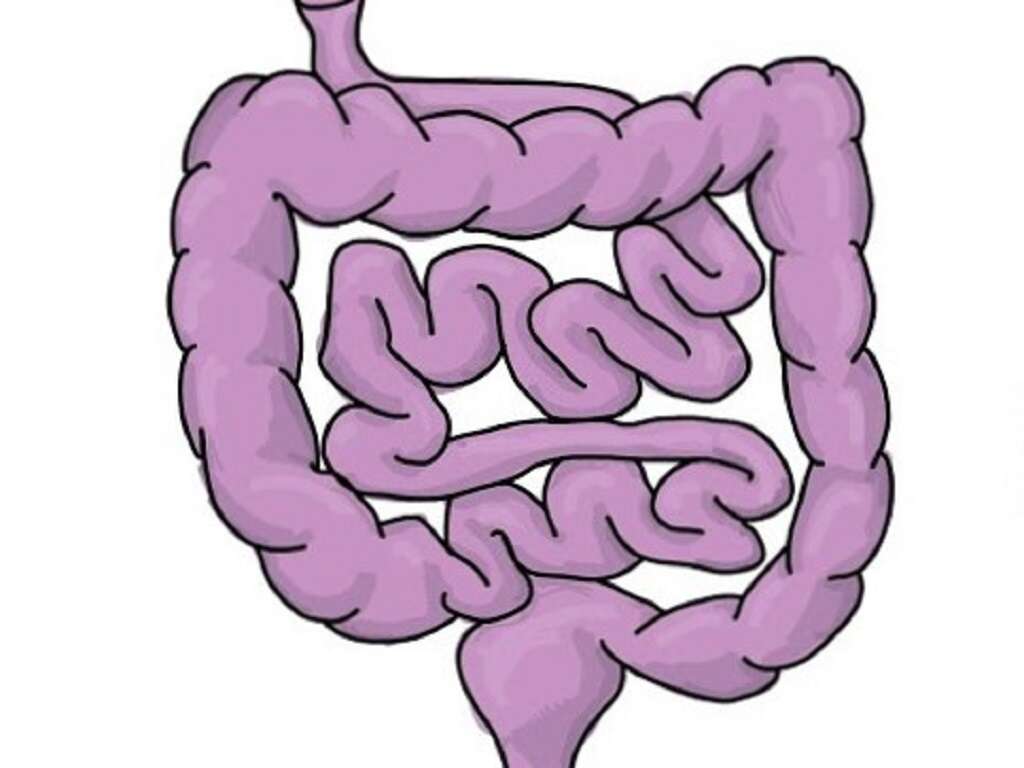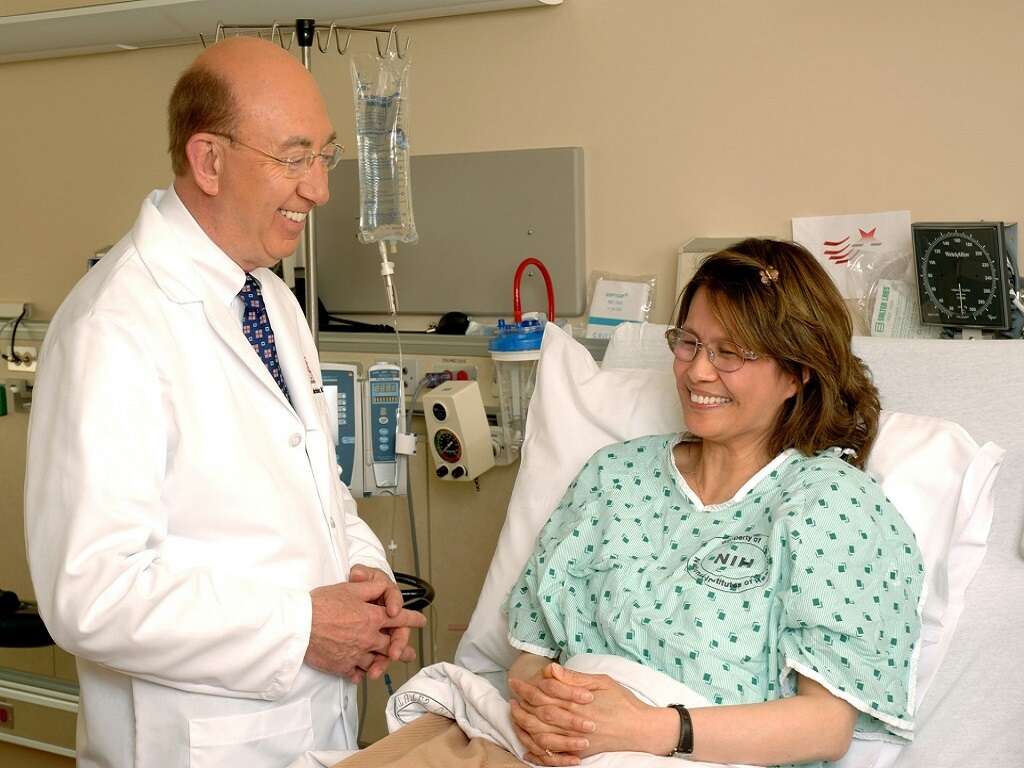10 Remedies for a Bloated Stomach
A bloated stomach, or abdominal bloating, is a very common issue that is often seen in many different conditions such as constipation, heartburn or gastroesophageal reflux disease, lactose intolerance, premenstrual syndrome, celiac disease, irritable bowel syndrome, and many others. It affects individuals of all ages, races, or genders. The patient usually presents with a tight and distended abdomen, which may be associated with pain, cramps, shortness of breath, nausea, or vomiting. The characteristic of the pain is usually sharp, and the location of pain may change rapidly.
The pain can range from moderate to so intense that some may even mistake it for a heart-related issue, especially if the pain radiates to the upper left side of the abdomen and chest. Pain that is felt on the right side of the abdomen is also often thought to be a gallbladder or appendix issue. The treatment and management of a bloated stomach largely depends on the underlying cause. Treatment may include the use of antacids to help relieve the pain. However, there are also remedies available that may be able to provide relief.
Bloated Stomach Remedy #1: Probiotics
Probiotics are microorganisms that are thought to provide benefits when consumed. The idea originated from a concept where Bulgarians who consume yogurt have longer lifespans. This led to the expansion of the probiotic market where many companies have claimed benefits such as improving immune health, reducing gastrointestinal discomfort, and relieving constipation.
Probiotics are usually safe for consumption but may also cause unwanted side effects in rare cases. A study also found that probiotics could help with the severity of bloating among participants who took part in an eight-week trial. Probiotics are also available through foods that boost levels of good abdominal bacteria.
Bloated Stomach Remedy #2: FODMAP Diet
Food is one of the most common triggers that cause digestive symptoms such as bloating. This is why the restriction of some foods can improve gastrointestinal symptoms in sensitive people. FODMAP refers to fermentable oligo, di, mono-saccharides and polyols. It is a term that is used to classify carbohydrate groups that tend to cause issues such as gas, bloating, and abdominal pain.
Some of the examples include wheat, legumes, rye, garlic, onions, milk, soft cheese, yogurt, honey, agave nectar, low calorie sweeteners, and certain fruits. Many studies have found that a low FODMAP diet can reduce bloating, reflux, pain, and flatulence. It also can improve the overall quality of life.
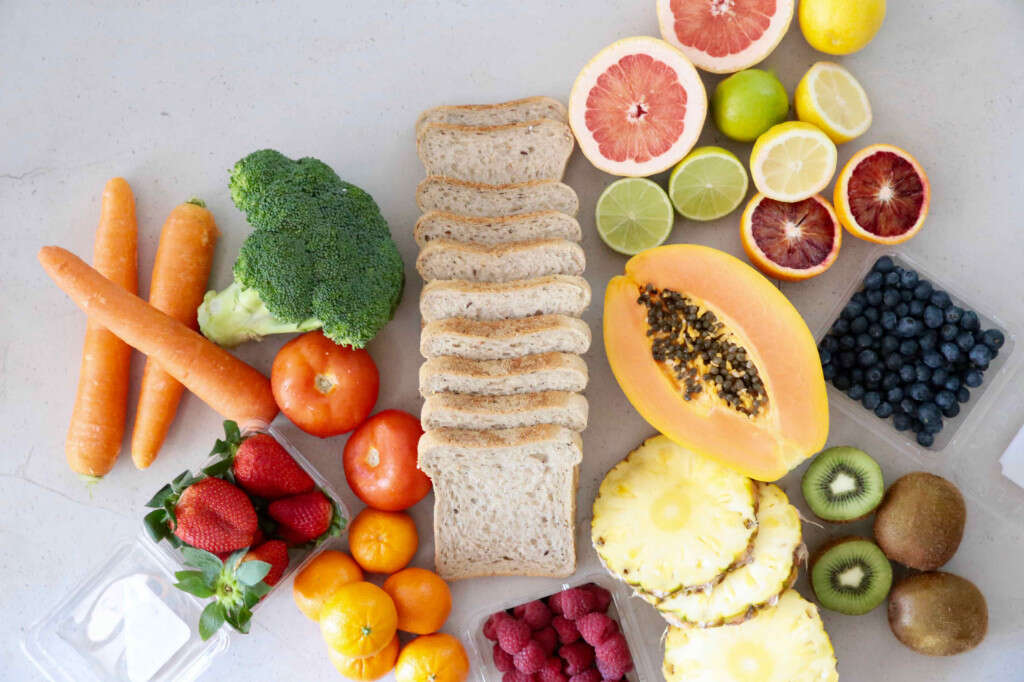
Bloated Stomach Remedy #3: Peppermint
Peppermint is a plant crossed between watermint and spearmint. It is now widely cultivated around the world. It is currently under preliminary research for short term treatment for irritable bowel syndrome. It also has a cooling effect and can be used topically for nerve pain, muscle pain, relief for itching, or for fragrance purposes.
It is popular for digestive issues such as bloating as it contains menthone and menthol that has digestive and antispasmodic properties. It also stimulates the secretion of bile and gastric juices to help expel gas. This makes it effective to help relieve bloating. Those who are feeling bloated can try a cup of peppermint tea.
Bloated Stomach Remedy #4: Psyllium
Psyllium is a name used to describe a group of plants where the seeds are used to produce mucilage. It is used to provide dietary fiber in the management of constipation and mild diarrhea. It can also be used as a food thickener. Some benefits observed from studies have shown that it can lower blood cholesterol levels and blood glucose levels.
It is useful for those who experience bloating due to constipation. Psyllium becomes a thick gel once the soluble fiber comes into contact with fluids. This helps the regulation of the digestive system and reduces bloating. It is a product easily found in health food or grocery stores.
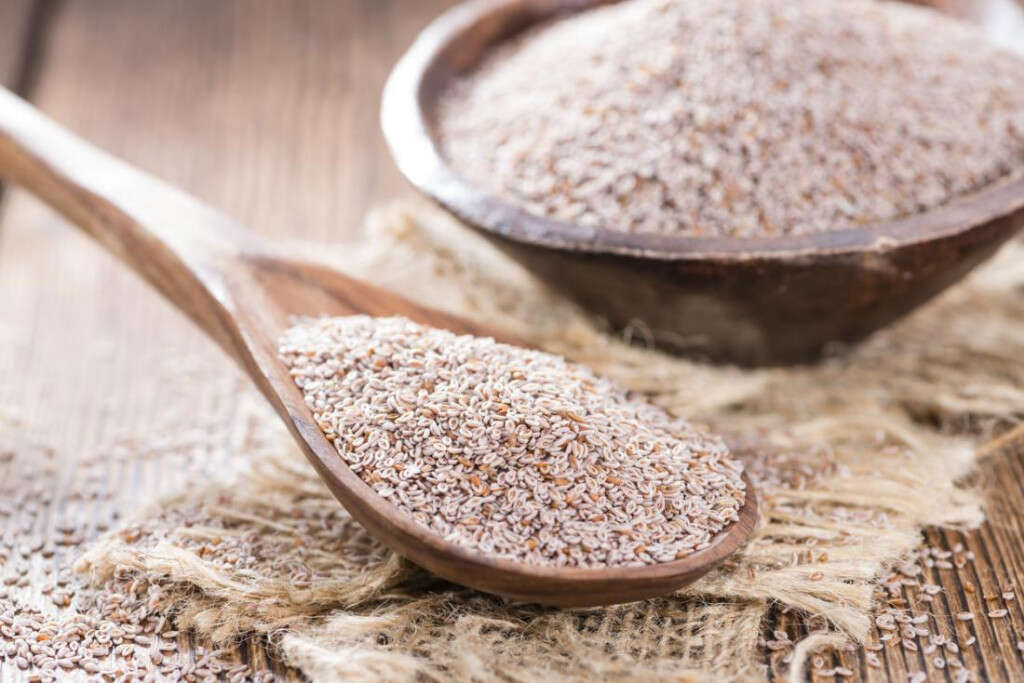
Bloated Stomach Remedy #5: Turmeric
Turmeric is a spice that is made from the turmeric plant. This spice is commonly used in Asian food for curries. The yellowish color of the spice is due to curcumin, which can also be used for cosmetics and food coloring. Turmeric has been used for medicinal purposes in the treatment of Crohn’s disease, arthritis, joint pain, heartburn, abdominal pain, bloating, jaundice, appetite loss, diarrhea, and stomach ulcers.
Turmeric contains chemicals such as curcumin that can help decrease inflammation. A study regarding the use of turmeric in the management of digestive issues showed that it was able to improve bloating, pain, a feeling of fullness, and pressure in 67 percent of participants.
Bloated Stomach Remedy #6: Artichoke Leaf Extract
Artichoke is a plant where the leaf, stem, and root are made into extracts that are used in medicine. It helps to stimulate the flow of bile from the liver and results in the reduction of gastrointestinal symptoms such as bloating. It may be beneficial against heartburn, kidney problems, irritable bowel syndrome, high cholesterol, edema, bladder infections, arthritis, and liver problems.
This is due to the chemicals present in artichoke that can reduce spasms, nausea, vomiting, intestinal gas, and cholesterol. It also helps protect the liver. The chemicals stimulate the release of bile which breaks down fat. These combat bloating and flatulence.
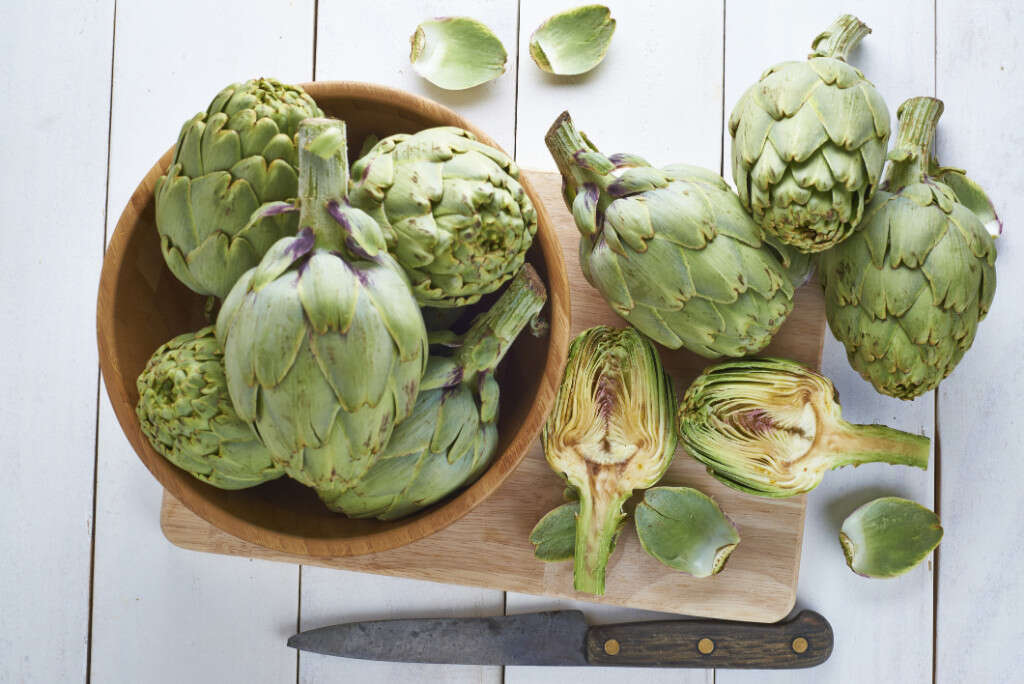
Bloated Stomach Remedy #7: Reducing Salt
Salt is comprised of mostly sodium chloride. It is an essential mineral for life and is an important part of food seasoning. However, excessive salt consumption increases the risk of cardiovascular and kidney diseases. It has been shown that reducing sodium intake by 1,000 mg a day can reduce the risk of cardiovascular disease by 30 percent.
Salt also causes water retention, which may contribute to abdominal bloating as it affects the ability of the kidneys to excrete fluid and waste. Those with abdominal bloating should try to stay away from high sodium foods such as fries, potato chips, and hot dogs, among others.
Bloated Stomach Remedy #8: Potassium
Potassium is one of the alkali metals that is chemically similar to sodium. It is vital for living cells to function, as the transfer of potassium through nerve cell membranes is required for nerve transmission. Both the excess and deficiency of potassium can cause arrhythmia and various electrocardiographic anomalies.
Potassium can be found in fresh fruit and vegetables. It can help with bloating as it helps the kidneys to flush out the excess salt and maintain fluid balance. Potassium plays an important role in renal filtration, reabsorption, and excretion.
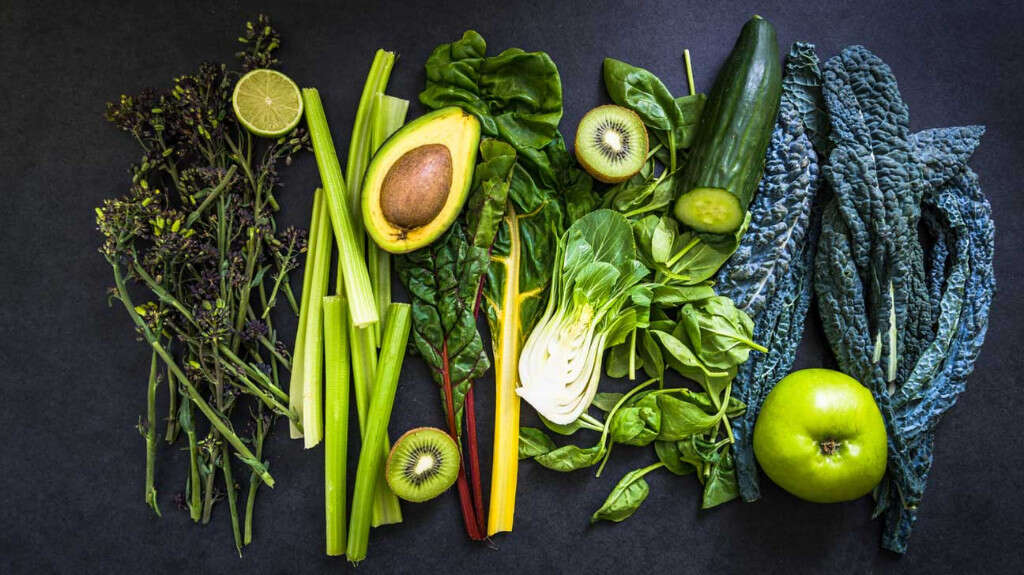
Bloated Stomach Remedy #9: Water
Water is a type of fluid that is tasteless, transparent, and odorless. Although it has no calories or organic nutrients, it is essential for all forms of life. The human body consists of 55 to 78 percent water depending on the size of the body. The body requires two liters of water every day to avoid dehydration.
This amount depends on the temperature, level of activity, and humidity. Having an adequate fluid intake can be beneficial for those who experience bloating as it helps with the excretion of excessive sodium and prevents constipation.
Bloated Stomach Remedy #10: Chamomile Tea
Chamomile refers to a group of daisy-like plants that is thought to have medicinal purposes. Two chamomile species are used to make herbal infusions. Chamomile tea is made from chamomile flowers. There is ongoing research about their anti-anxiety properties.
They contain numerous polyphenols, which still have unknown effects in humans. Chamomile tea can be beneficial for those who experience abdominal bloating as it helps the dissipation of gas by relaxing the gastrointestinal muscles. It also helps to soothe and relax.




